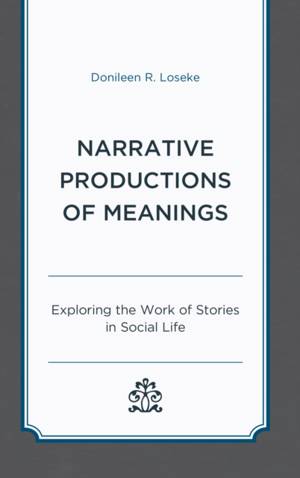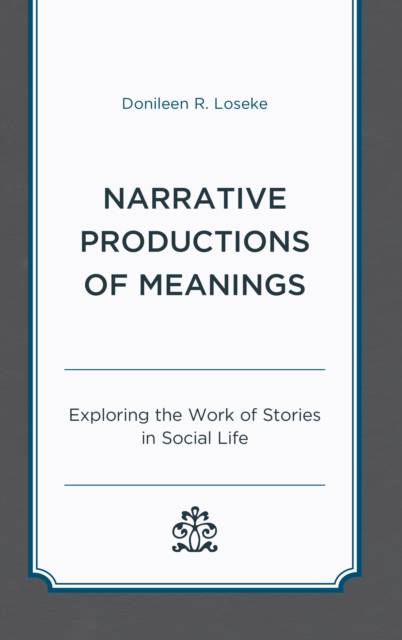
- Afhalen na 1 uur in een winkel met voorraad
- Gratis thuislevering in België vanaf € 30
- Ruim aanbod met 7 miljoen producten
- Afhalen na 1 uur in een winkel met voorraad
- Gratis thuislevering in België vanaf € 30
- Ruim aanbod met 7 miljoen producten
Zoeken
Narrative Productions of Meanings
Exploring the Work of Stories in Social Life
Donileen R Loseke
Hardcover | Engels
€ 158,95
+ 317 punten
Uitvoering
Omschrijving
Narrative Productions of Meaning explores how stories, ranging from self-stories to those told by media, social activists, politicians, social policy makers, and social service providers, shape the meaning of self, others, objects, events, and experiences and how these meanings have material consequences.
Specificaties
Betrokkenen
- Auteur(s):
- Uitgeverij:
Inhoud
- Aantal bladzijden:
- 126
- Taal:
- Engels
Eigenschappen
- Productcode (EAN):
- 9781498577779
- Verschijningsdatum:
- 8/04/2019
- Uitvoering:
- Hardcover
- Formaat:
- Genaaid
- Afmetingen:
- 152 mm x 229 mm
- Gewicht:
- 358 g

Alleen bij Standaard Boekhandel
+ 317 punten op je klantenkaart van Standaard Boekhandel
Beoordelingen
We publiceren alleen reviews die voldoen aan de voorwaarden voor reviews. Bekijk onze voorwaarden voor reviews.











